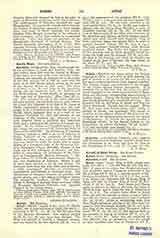

Achaia (Aegialeia), the name, before the Roman conquest in 146 B.C., of a strip of land between the gulf of Corinth in the north and Elis and Arcadia in the south, embracing twelve cities leagued together. The Achaean League was prominent in the struggle of the Greeks against Roman domination. It is probably due to this fact that the name was afterwards extended to the whole country south of Macedonia and Illyricum, corresponding approximately to modern Greece. During the Roman period Achaia was usually governed as a senatorial province. The Governor was an ex-Praetor of Rome, and bore the title of Proconsul. Corinth was the capital. When St. Paul came into Achaia (Acts, xviii), Gallio, a brother of Seneca, was proconsul. His refusal to interfere in the religious affairs of the Jews and the tolerance of his administration favored the spread of Christianity. In Corinth the Apostle founded a flourishing church. In his Second Epistle to the Corinthians, he salutes Christians” in all Achaia” (i, 1) and commends their charity (ix, 2).
W.S. REILLY

